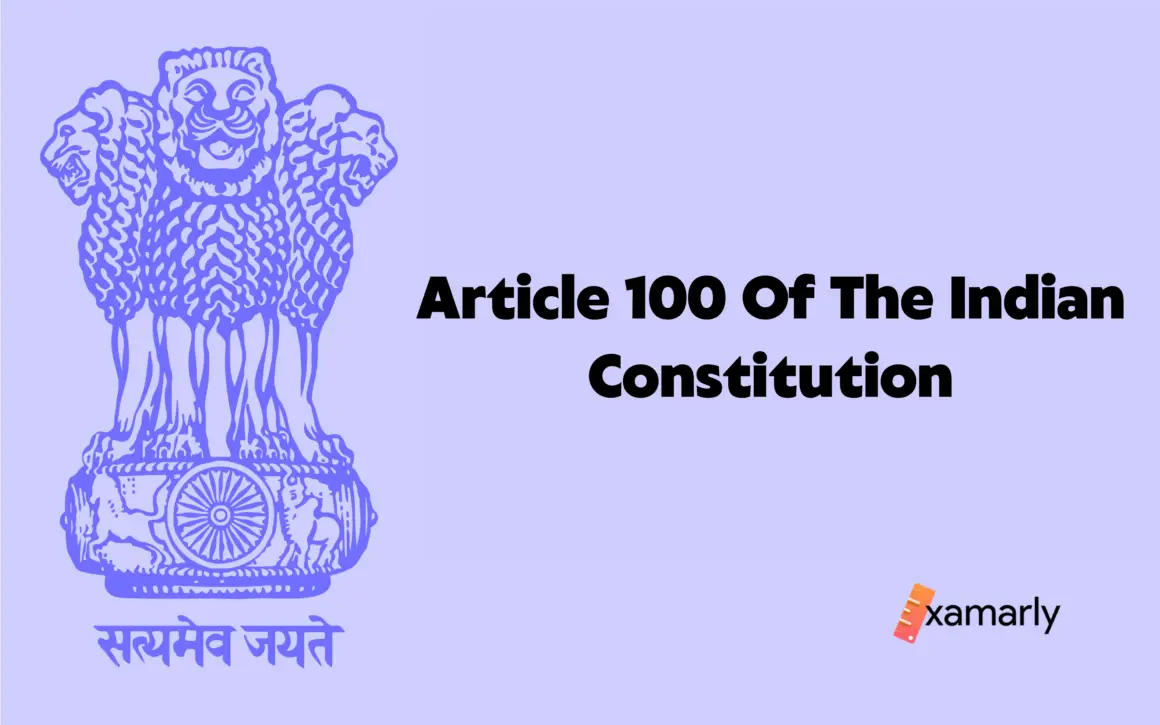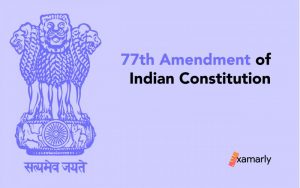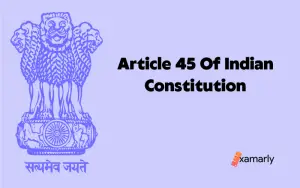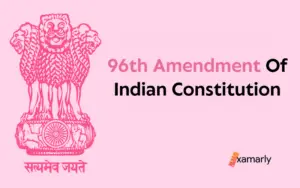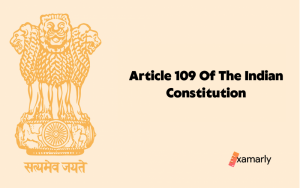Article 100 of the Indian Constitution is one of the important Articles defined in the constitution of India. It discusses the requirements that are a mandate to run a sitting in Lok Sabha and the Rajya Sabha.
Before we define and understand the sole concept of Article 100 of the Indian Constitution, we will familiarize ourselves with some key definitions that have been used in the aforementioned Article to ensure that we understand each and every aspect of this Article.
What is a Quorum?
As per the usual definition, a quorum is the availability of a minimum number of people that are required in a committee or a group to transact a business or take a decision or carry out the sole function of the group.
In our context, a quorum is the availability of the minimum number of members of either of the Houses of Parliament in order to carry out the functions (sitting) of the House.
Article 100 Of The Indian Constitution – In Brief
Article 100 of the Indian constitution has four clauses that focus on voting in the house, the quorum of the House, the voting authorities of The Speaker in Lok Sabha, and The Chairman of the Rajya Sabha, among other important factors related to the working of the House.
Let us dig deep into Article 100 of the Indian Constitution and conquer the concepts covered. We will go through each clause one by one and understand them.
Related Article – Article 99 Of The Indian Constitution
Clause 1 – As it is & Explained
“(1) Save as otherwise provided in this Constitution, all questions at any sitting of either House or joint sitting of the Houses shall be determined by a majority of votes of the members present and voting, other than the Speaker or person acting as Chairman or Speaker The Chairman or Speaker, or person acting as such, shall not vote in the first instance, but shall have and exercise a casting vote in the case of an equality of votes”
The first clause of the aforementioned Article states that all the questions in sitting of either joint sessions of the Houses or any sitting of a particular House shall be determined by a majority of votes. The majority of votes will form from the voting of the members that are present and are voting.
The Speaker of the Lok Sabha and The Chairman of the Rajya Sabha shall not be participating in this voting in the first instance. They can only vote in a situation where equality of votes has arrived.
Clause 2 – As it is & Explained
“(2) Either House of Parliament shall have the power to act notwithstanding any vacancy in the membership thereof, and any proceedings in Parliament shall be valid notwithstanding that it is discovered subsequently that some person who was not entitled so to do sat or voted or otherwise took part in the proceedings”
Clause 2 of the Article states that the Rajya Sabha and the Lok Sabha have the power to function in spite of any member missing. The proceedings will be valid even after finding out that a person who is not a member of the House has also participated in the proceeding or the voting.
His vote will also be counted.
Clause 3 – As it is & Explained
“(3) Until Parliament by law otherwise provides, the quorum to constitute a meeting of either House of Parliament shall be one-tenth of the total number of members of the House”
The third clause of Article 100 of the Indian constitution says that the quorum will be required to commence a meeting in either House of Parliament.
The quorum will consist of one-tenth member of the total members of the House until any law is made by the government otherwise.
Clause 4 – As it is & Explained
“(4) If at any time during a meeting of a House there is no quorum, it shall be the duty of the chairman or Speaker, or person acting as such, either to adjourn the House or to suspend the meeting until there is a quorum”
The above-mentioned clause states that if there is no quorum reached during the sitting in House of the Parliament, then it is the duty of The Speaker or The Chairman or anyone acting on their behalf to dismiss the meeting or keep a hold on the meeting until the quorum has reached.
Summing Up
As we saw in Article 100 of the Indian Constitution, there are several factors that have to be taken into the consideration during the sitting of the Houses. These are indeed very important factors as they are the protocols to be followed in the interest of efficient working.
FAQs
Is voting a constitutional right?
Yes, voting is a constitutional right.
When was the Lok Sabha (the House of the People) first constituted?
The Lok Sabha (House of the People) was duly constituted for the first time on 17 April 1952 after the first General Elections held from 25 October 1951 to 21 February 1952.
What is the legislative relationship between the Lok Sabha and the Rajya Sabha?
In legislative matters, both Houses enjoy almost equal powers except in the case of Money Bills. The main function of both Houses is to pass laws. Every Bill has to be passed by both Houses and assented to by the President before it becomes law. In the case of Money Bills, the Lok Sabha has overriding powers.
Does the Speaker have the right to vote?
The Speaker has a casting vote in the event of a tie. It is customary for the Presiding Officer to exercise the casting vote in such a manner as to maintain the status quo.


